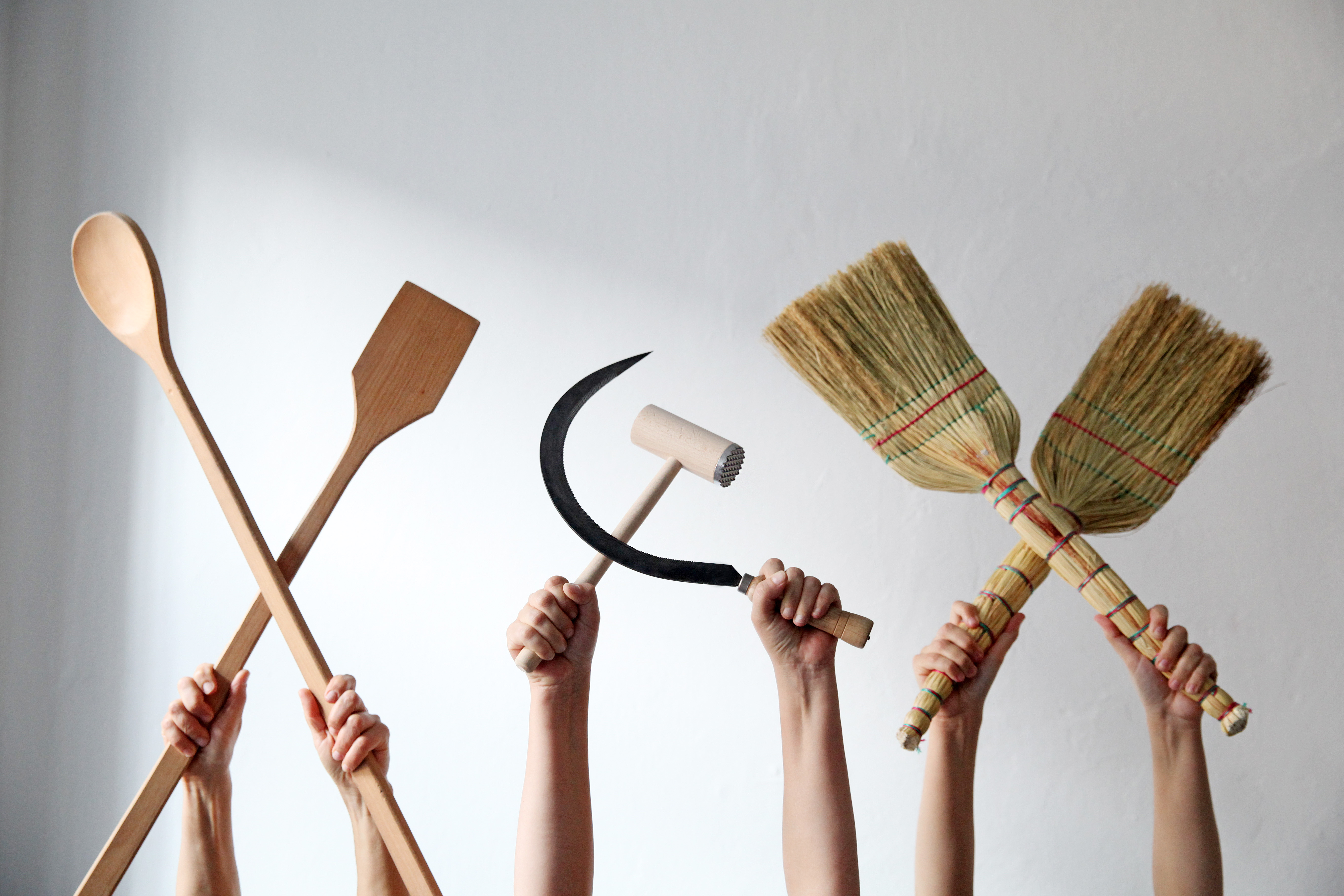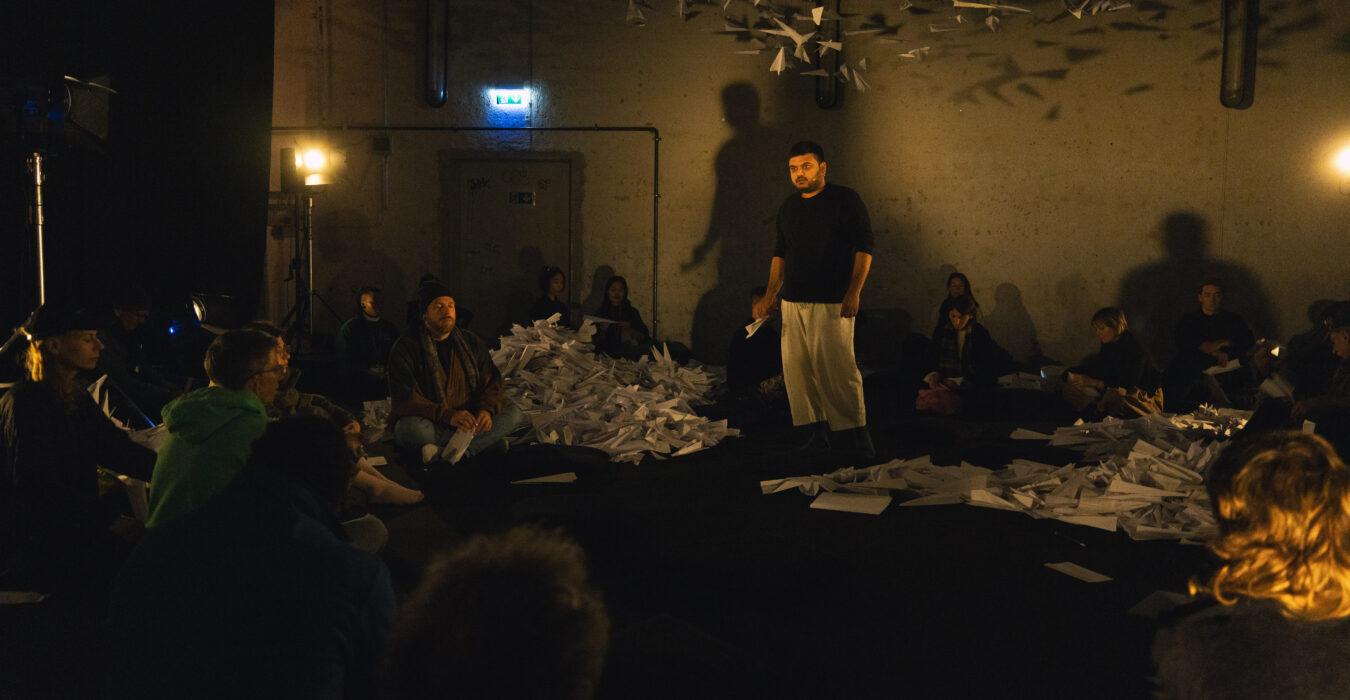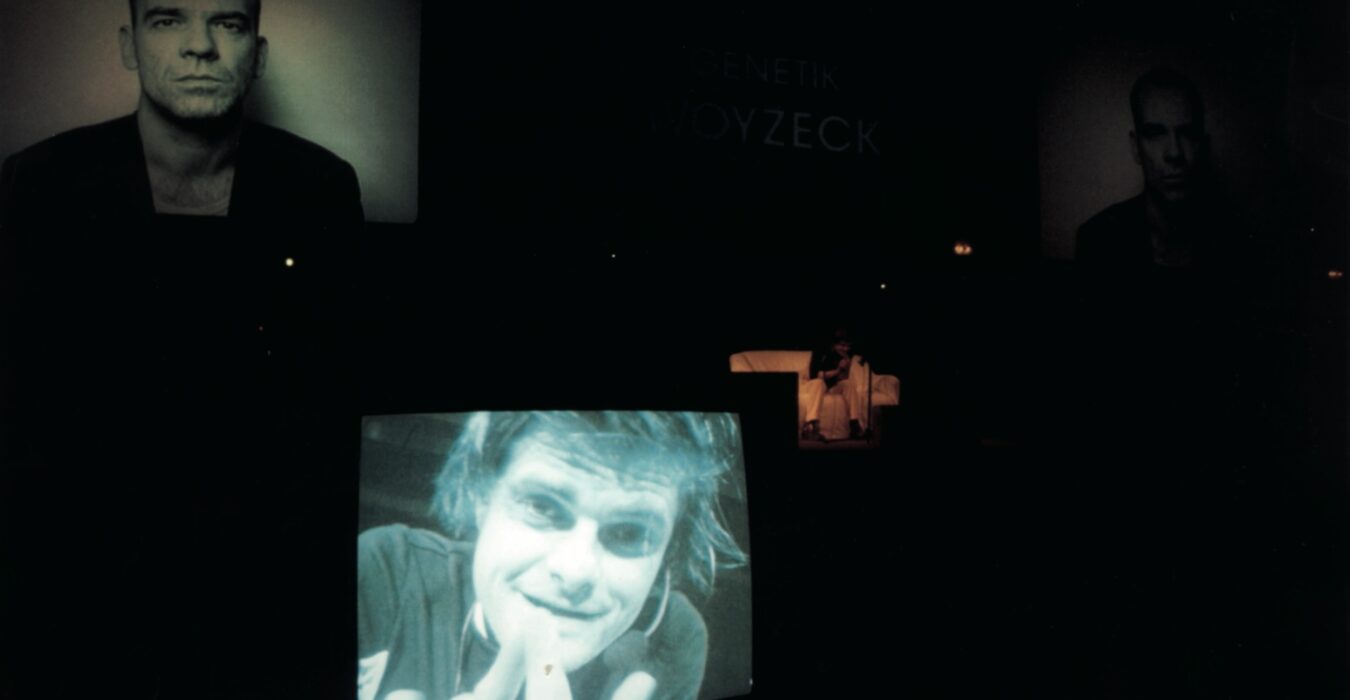Abolirea familiei/Die Abschaffung der Familie
Nicoleta Esinencu (MDA)/HAU
The author and director Nicoleta Esinencu combines personal experiences of the loss of her own parents with concrete developments in family policy in the Moldovan state and with the specific situation of families after the collapse of the Soviet Union. She asks about the concept of the “family” in the 21st century and what it means to talk about the family in today’s culture. A choir of narrators refers as a collective voice to the mechanisms of state-sponsored patriarchy.
The issue of the family has taken on special significance in Moldova, because after the fall of the Soviet Union, when the newly created Moldovan state was unable to safeguard the welfare of its citizens, all the pressure for economic survival shifted to the family itself.
It was up to each individual family to find a solution to cope with the changed conditions. Leaving the country to work abroad became a way out for most of the population. Since then, this has led to the separation and disintegration of many families and the alienation of many parents from their children, men from their wives, and to breaks between brothers and sisters. A very concrete, but also general phenomenon of the dissolution of the family, to which the state on the one hand does not counteract in any way today with effective means in order to continue on the other hand the rhetoric that the family as one of the highest traditional, Christian and Moldavian values must not be questioned or discussed.
Starting from these concrete contexts and linked to the personal experience of losing one’s parents, Nicoleta Esinencu asks about the concept of “family” in the 21st century? What does it mean to talk about family in today’s culture? A culture in which talking about one’s own vulnerability is unacceptable, and the family is one of our most sensitive fields. A culture in which it is undesirable to relativize or question family relationships.
The family, the traditional family, the patriarchal family, the monogamous family – all this awakens idyllic ideas of care, love and support. It is never about lovelessness, violence, emotional terror or power relations.
Different family stories are developed on stage. Nevertheless, the storytellers* form a choir – as a collective voice that clarifies the mechanisms of state-sponsored patriarchy. It clears up the myth of the monogamous family, which holds the traditional family in spell; it casts an evil eye on private property; it curses the patriarchal system and in the end capitalism itself.
Nicoleta Esinencu/teatru-spălătorie
Nicoleta Esinencu (*1978, Chișinău, USSR / Republic of Moldova) lives and works as an author and director in Chișinău. After a scholarship at the Akademie Schloss Solitude in Stuttgart, she became internationally known with her text “FUCK YOU, Eu.ro.Pa! The play won the Romanian dramAcum theatre prize and was published in the Reader of the Romanian Pavilion at the 51st Venice Biennale in 2005.
The artist was a guest at the Leipzig Book Fair in 2008 and 2017 and at the International Literature Festival Berlin in 2010. In 2009 she was one of 16 stage writers* invited by the Goethe-Institut to the project “After the Fall – Europe after 1989” in which she realized the performance “Antidote”.
In 2010 Nicoleta Esinencu was co-founder of the independent initiative teatru-spãlãtorie, which arose out of the need to create an alternative art space in Chișinăuzu in which artists* can act and react in relation to the political and social events in Moldova. Since the venue had to be closed in 2017, the women’s collective teatru-spălătorie has continued its work without its own stage ever since. its much-discussed theatre projects look at social reality in the Republic of Moldova and the associated contradictions of the post-Soviet era from a critical perspective of pan-European history.
HAU Hebbel am Ufer has been working continuously with Nicoleta Esinencu and teatru-spălătorie since 2012. In 2012 they were guests for the first time with “Clear History” at the festival “Many Years After …” in Berlin and at “Good Guys Only Win in Movies” (2014) with “Dear Moldova, can we kiss just a little bit? (together with Jessica Glause) and “American Dream”.
As part of the festival “Die Ästhetik des Widerstands – Peter Weiss 100” (2016) the HAU commission “Life” premiered. Most recently, the co-production “Requiem for Europe” was shown at HAU as part of “Comrades, I am not Ashamed of my Communist Past”. The current international co-production “NN ” is again a commissioned work of HAU Hebbel am Ufer.
Nicoleta Esinencu has been a guest of the DAAD’s Berlin Artists-in-Residence Programme since June 2019.




